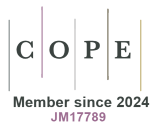Downloads
How to Cite
Baio, G., & Heath, A. (2019). When Simple Becomes Complicated: Why Excel Should Lose its Place at the Top Table. Global and Regional Health Technology Assessment, 4(1), 3–6. https://doi.org/10.33393/grhta.2017.368
Issue
Section
Editorial (on invitation only)
License
Statistics
- Abstract views - 1156 times
- PDF downloads - 640 times
Sign up
Browse
banners150
Most popular articles in the last 30 days
-
259
-
201
-
163
-
146
-
118









